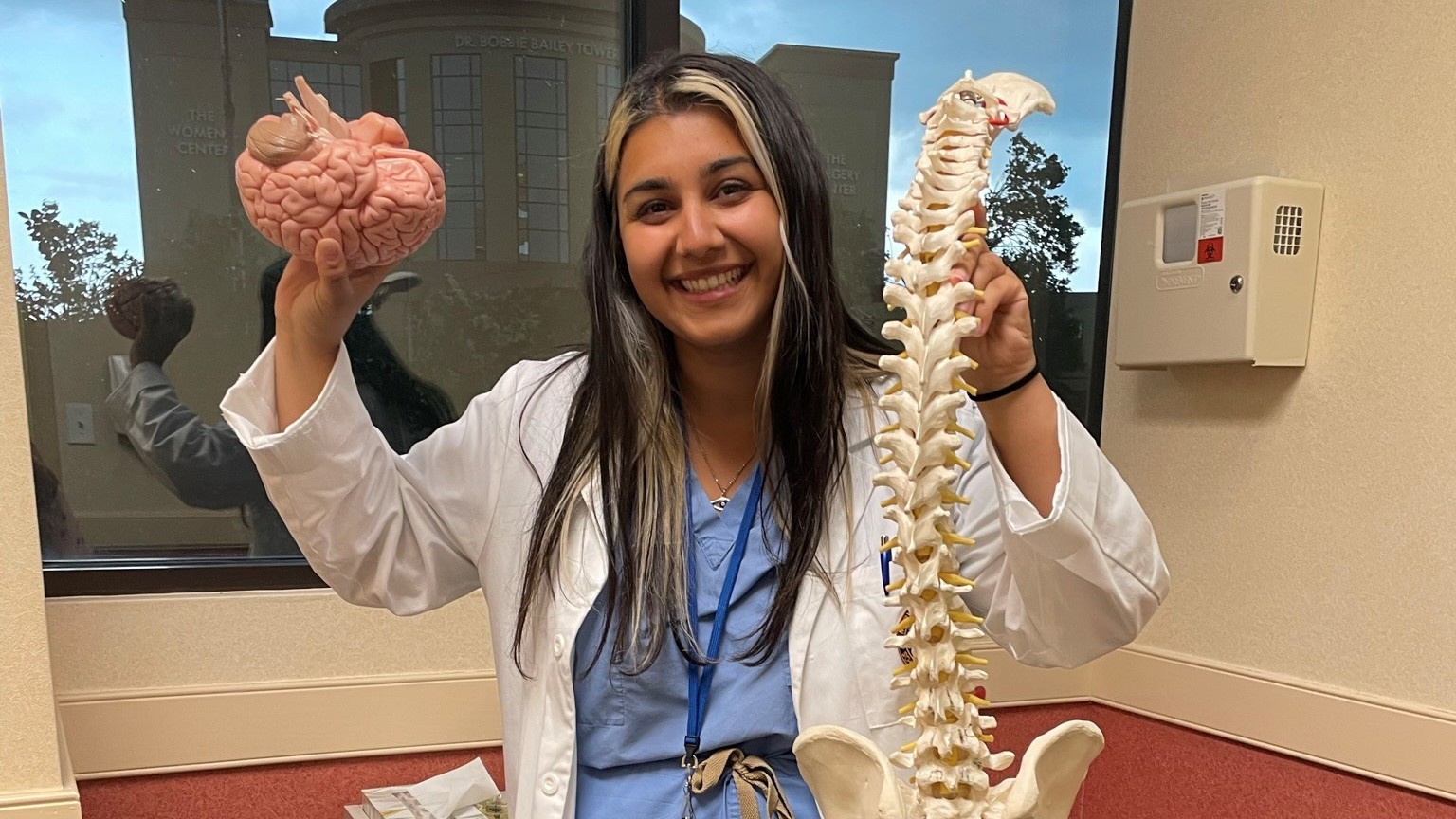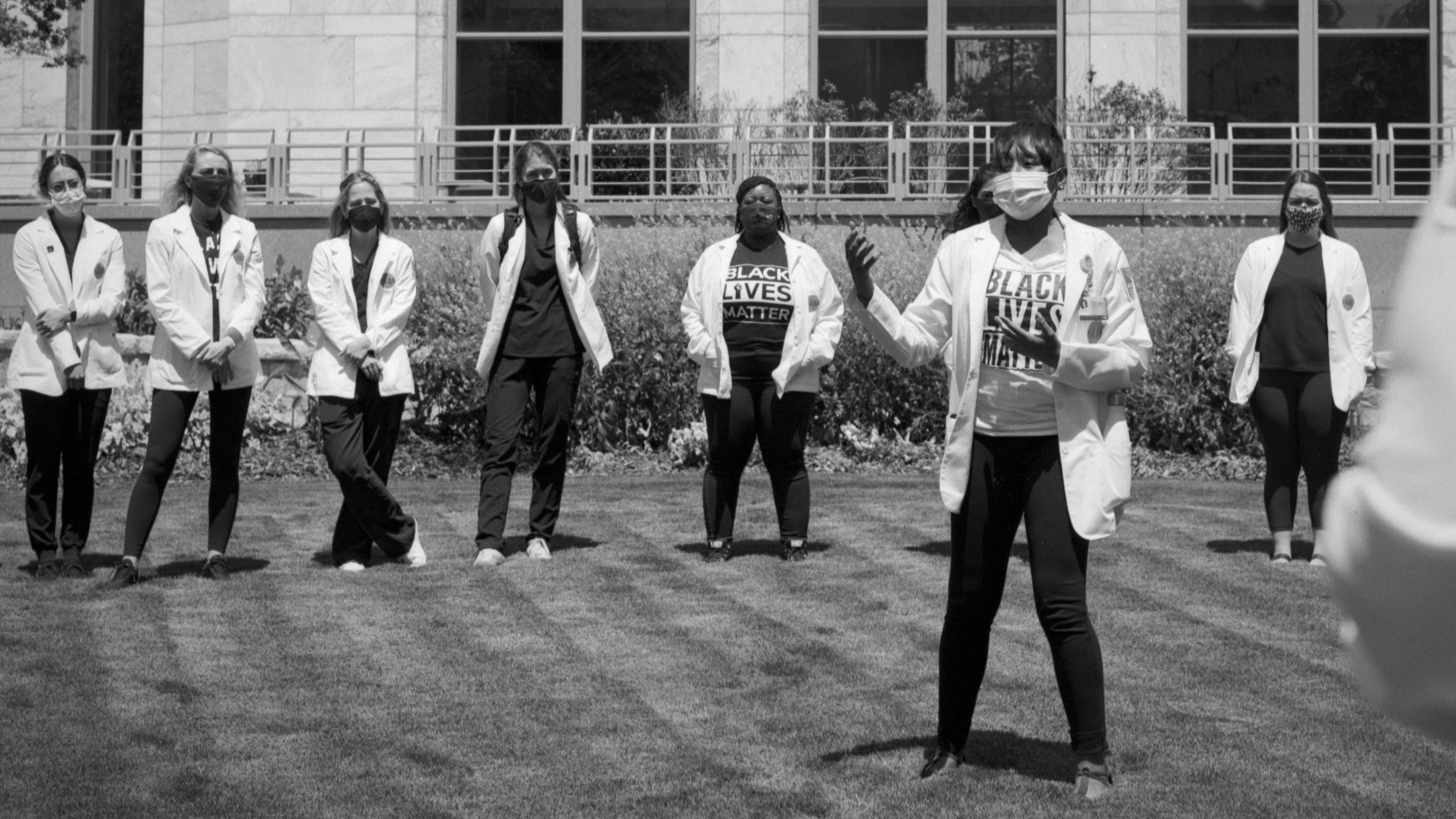Well prepared to enter clinical practice
In the exit survey of the classes of 2019, 2020, and 2021, on average 85% of graduates agreed or strongly agreed that the Emory PA program prepared them to care for diverse and underserved patient populations, and on average 90% of graduates agreed or strongly agreed that the Emory PA program prepared them to deliver compassionate care.
High-quality education
The Emory PA curriculum is taught by highly qualified and experienced faculty with over 100 years of combined experience in PA education among the principal faculty. The program also attracts expert lecturers from the broad Emory community, the region, and the Centers for Disease Control and Prevention.
Evidence-based curriculum
Evidence-based medicine is an integral component of the Emory PA curriculum.
Students matriculate in an epidemiology/biostatistics course (PAE 7002) in the second semester and learn key concepts to interpret research publications. Building on these concepts and coordinating with modules, guided journal clubs present hallmark papers with a focus on the interpretation of the evidence. Additionally, current best practices evidence is presented in each module to guide clinical decision-making.
Clinical year students apply the learned concepts to develop their thesis projects.
Diverse clinical training opportunities
Students are exposed to multiple healthcare delivery systems including academic healthcare settings, community hospitals, rural clinics, urban institutions in medically underserved areas, the Atlanta Veterans Affairs Medical Center, and private practices. Bilingual students may rotate through predominately Spanish-speaking sites, and all students have service opportunities to work with cultural minorities. Grady Memorial Hospital serves a multicultural population with patients from African nations, the Middle East, South and Central America, and Eastern Europe. This diversity offers the opportunity to work with onsite interpreters or use a language line for ~50 languages. Most students complete at least one rotation at a medically underserved site.
All students complete their core rotation in inpatient medicine at an Emory-affiliated hospital and complete a psychiatry rotation at an Emory-affiliated academic healthcare center. In addition, all students complete a rotation in a rural or urban medically underserved area to further increase the variety of experiences.
The Emory PA Program offers three elective rotations, 12 weeks total in length, which may include an Academic Medicine rotation for students interested in teaching in a PA Program, advocating for the PA profession, or exploring health policy issues. Other electives include opportunities in all medical and surgical subspecialties. Students utilize these elective rotations for career exploration and to address weaker knowledge areas. From pediatric specialty rotations such as pediatric inpatient medicine, pediatric hematology/oncology, and rotations in the PICU to geriatrics and palliative care, our students have a wide array of choices.
In the exit survey, over 95% of students listed the variety of available rotations as one of the top five strengths of the Emory PA Program.




